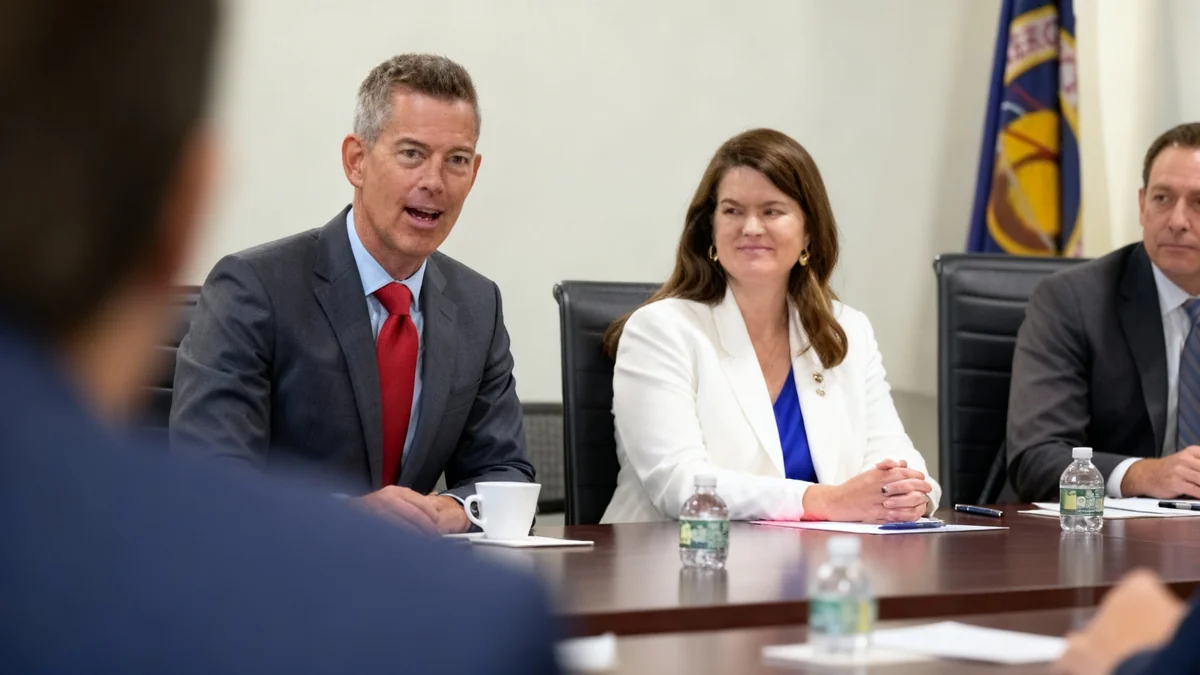In a significant policy reversal, the White House announced on November 4 that it is once again nominating billionaire entrepreneur and private astronaut Jared Isaacman to serve as the administrator of NASA. The decision comes just over five months after President Donald Trump abruptly withdrew Isaacman's initial nomination.
The move seeks to install permanent leadership at the space agency, which has been under the guidance of an acting administrator for most of the year. The renomination sets the stage for a new confirmation process in the Senate, reigniting discussions about the future direction of America's space exploration and commercial space policies.
Key Takeaways
- Jared Isaacman has been renominated to lead NASA, five months after his first nomination was withdrawn.
- The announcement was made by President Donald Trump, who praised Isaacman's experience and vision for space exploration.
- The decision follows a period of interim leadership, most recently by Secretary of Transportation Sean Duffy.
- The commercial space industry has largely voiced strong support for Isaacman's appointment.
An Unexpected Reversal in NASA Leadership
The White House confirmed its renewed support for Jared Isaacman through a social media post from President Donald Trump. The statement praised Isaacman's qualifications, highlighting his direct experience as an astronaut and his commitment to advancing the commercial space sector.
"Jared’s passion for space, astronaut experience, and dedication to pushing the boundaries of exploration... make him ideally suited to lead NASA into a bold new era," the President wrote. This language was nearly identical to the initial nomination announcement in December 2024, signaling a firm return to the administration's original choice.
The decision marks a surprising turn of events. Isaacman’s first nomination was withdrawn on May 31, just days before a scheduled full Senate vote. At the time, the withdrawal was officially linked to a review of Isaacman's past political donations to candidates from both major parties.
The Politics Behind the Nomination
The initial withdrawal of Isaacman's nomination was widely seen by insiders as fallout from a public disagreement between President Trump and SpaceX founder Elon Musk. Musk had been a vocal advocate for Isaacman's appointment. The official reason cited by the White House concerned Isaacman's political contributions, though this information had been public knowledge for months prior to the decision.
Following the new announcement, Isaacman expressed his gratitude. "Thank you, Mr. President @POTUS, for this opportunity," he posted on social media. "It will be an honor to serve my country under your leadership."
A Tumultuous Period of Interim Leadership
NASA has been without a permanent, Senate-confirmed administrator since the start of the year. Following the departure of the previous leadership, Janet Petro, the director of the Kennedy Space Center, stepped in as acting administrator.
In July, the White House made an unusual move by appointing a Cabinet secretary to the temporary role. Secretary of Transportation Sean Duffy was named acting administrator, a decision that was a first for the agency. While Duffy oversaw key milestones, including progress on the Artemis program, industry sources reported some frustration within the White House regarding his long-term suitability for the position.
A Historic First
The appointment of Sean Duffy marked the first time in NASA's history that a sitting Cabinet secretary simultaneously served as the agency's acting administrator. This highlighted the administration's difficulty in finding a permanent nominee after withdrawing Isaacman's name.
Upon the renomination announcement, President Trump thanked Duffy for his service. "Sean Duffy has done an incredible job as interim administrator," he stated. Duffy also commented, congratulating Isaacman and promising a seamless transition. "We’ve made giant leaps in our mission to return to the Moon before China," Duffy wrote, emphasizing the geopolitical stakes of the current space race.
The Path to Renomination
Despite the public setback in May, Isaacman remained supportive of the administration. He suggested the withdrawal was driven by individuals within the White House who had issues with his association with Musk. In the months that followed, Isaacman reportedly met with President Trump, keeping lines of communication open.
By October, rumors began circulating in Washington and the aerospace industry that the White House was reconsidering its position. The renewed nomination confirms those whispers and suggests a reconciliation of any previous concerns.
"The support from the space-loving community has been overwhelming. I am not sure how I earned the trust of so many, but I will do everything I can to live up to those expectations."
The above statement from Isaacman reflects the broad base of support he has cultivated within the commercial and private space sectors. His experience as the commander of the Inspiration4 mission, the first all-civilian orbital spaceflight, gives him a unique perspective that many in the industry believe is crucial for NASA's next chapter.
Industry Reaction and the Road Ahead
The response from the aerospace community to Isaacman's renomination has been overwhelmingly positive. Executives from various space companies quickly offered their congratulations on social media. The Commercial Space Federation, a key industry group, formalized its support in a letter to the Senate Commerce Committee, which will oversee the confirmation hearings.
"With decades of experience as an entrepreneur, business leader, and commercial space pioneer, Mr. Isaacman is ideally suited to lead NASA at this critical time in the agency’s history," the Federation stated in its letter. This strong backing could help smooth the path for his confirmation.
The nomination now returns to the Senate. The process will involve hearings before the Senate Commerce Committee, followed by a vote. If successful, the nomination will proceed to the full Senate for a final confirmation vote. The timeline for this process can take several months, depending on the legislative calendar and political priorities.
For NASA, the appointment of a permanent leader is critical. The agency is managing several high-stakes programs, including:
- The Artemis Program: A multi-billion dollar effort to return astronauts to the Moon and establish a sustainable presence there.
- Commercial Partnerships: Increasing reliance on private companies like SpaceX and Blue Origin for crew transport, lunar landers, and space station development.
- Earth Science: Monitoring climate change and Earth's systems from space.
- Deep Space Exploration: Missions like the James Webb Space Telescope and future robotic explorers.
With a clear mandate, Isaacman would be tasked with steering these complex initiatives while navigating the political and budgetary realities of Washington, D.C. His confirmation would end a prolonged period of uncertainty and install a leader with firsthand experience in the new commercial space paradigm.





